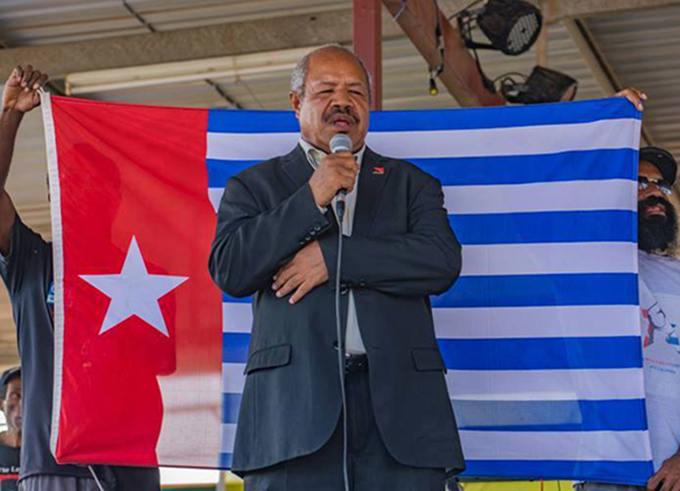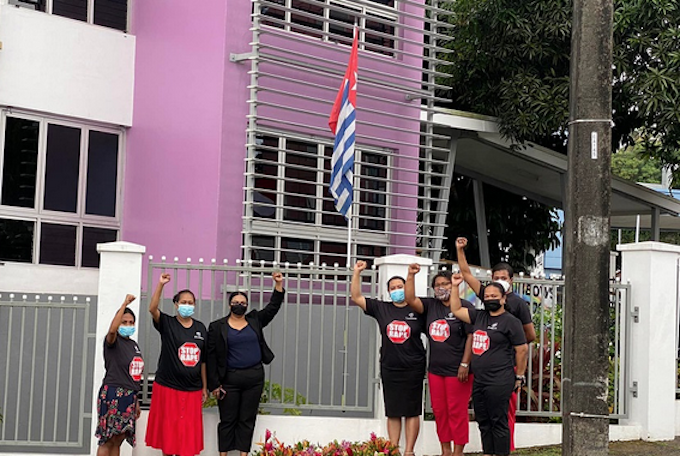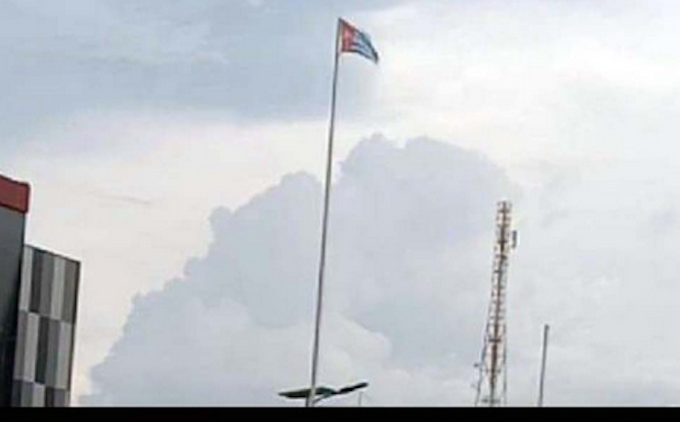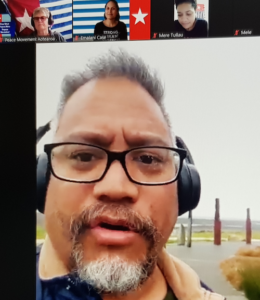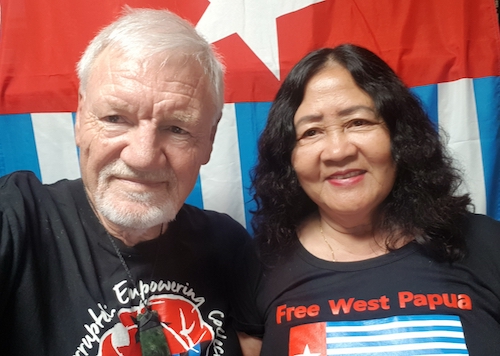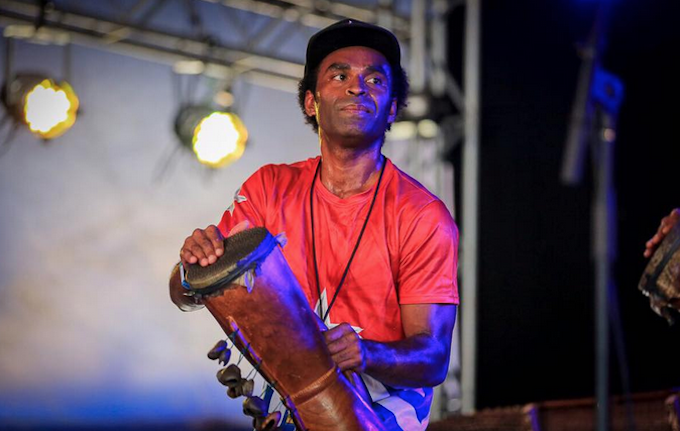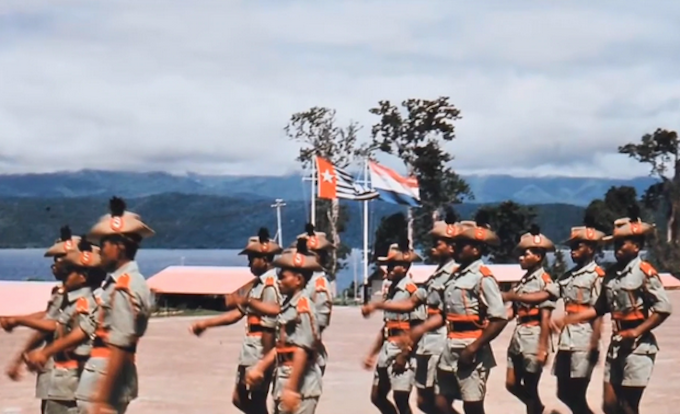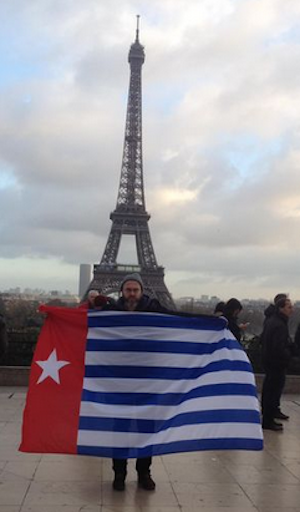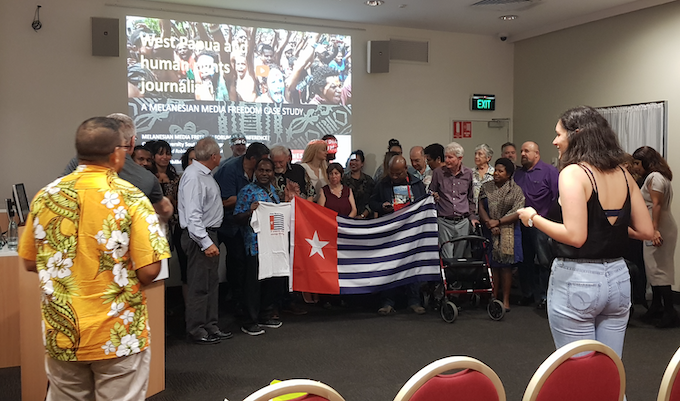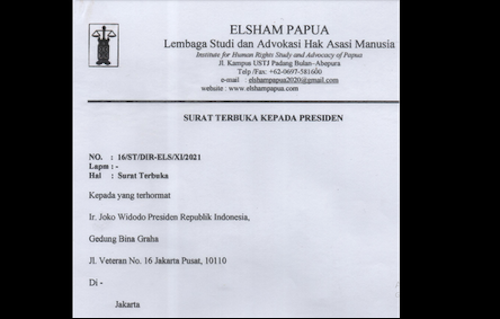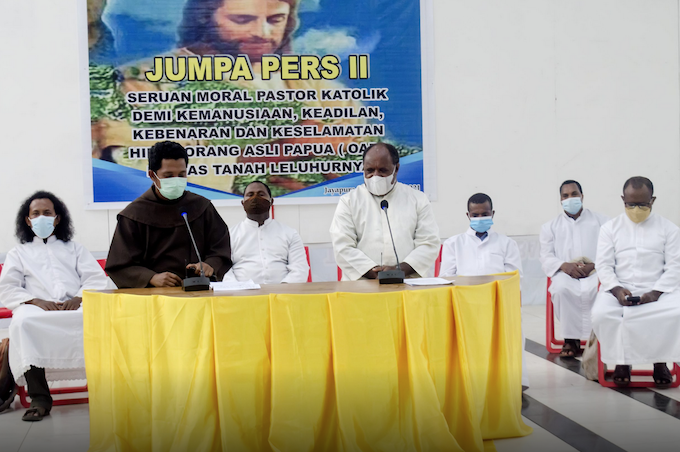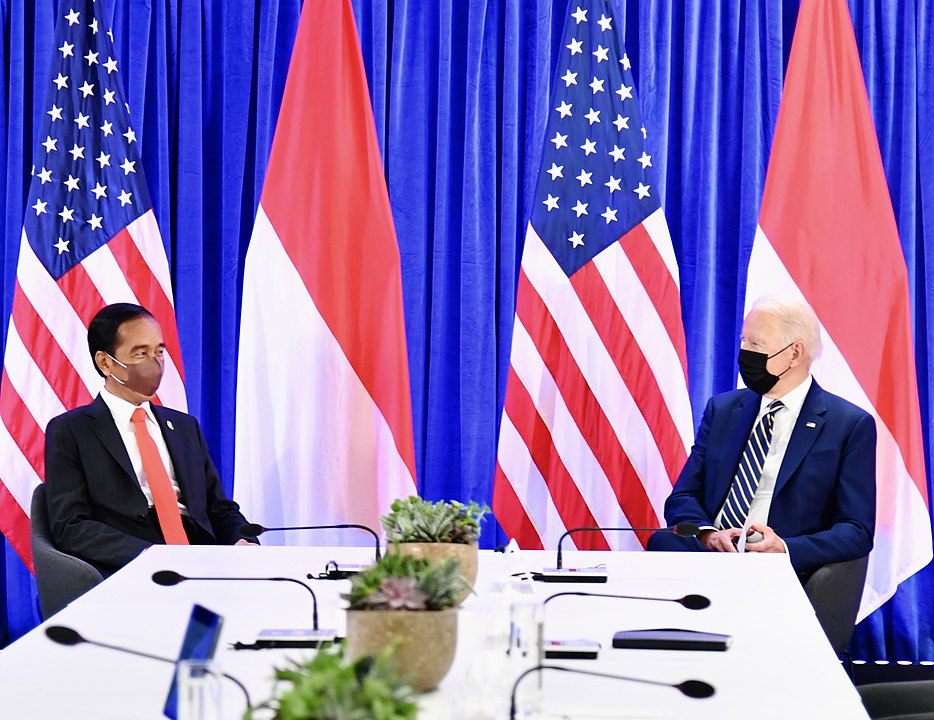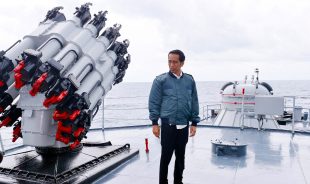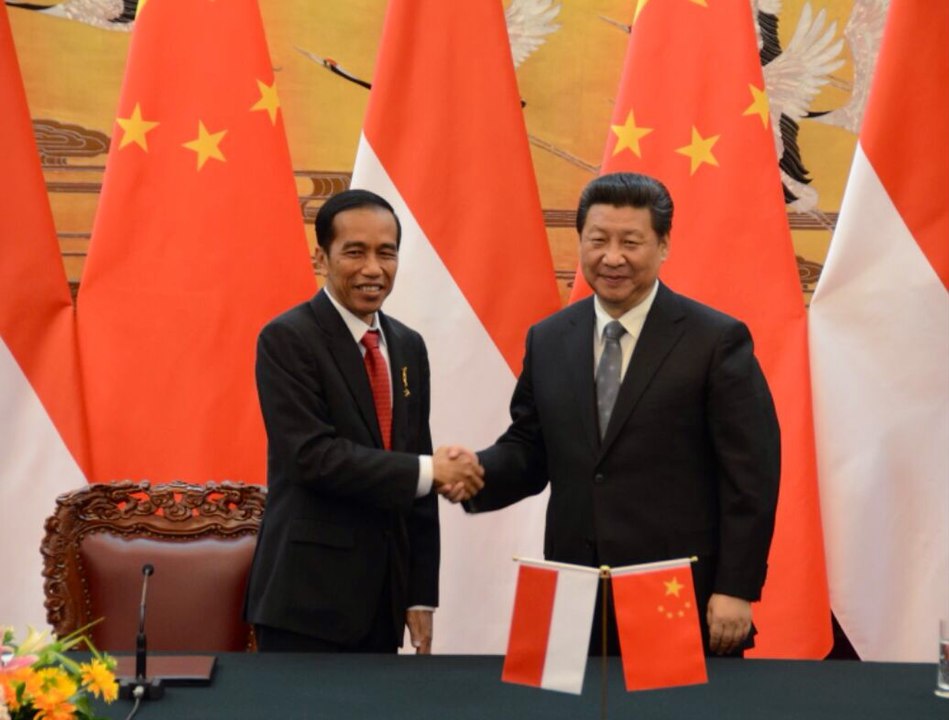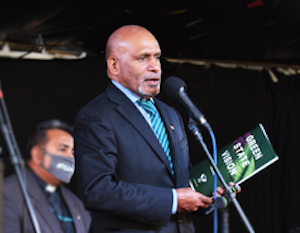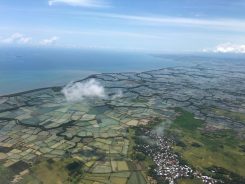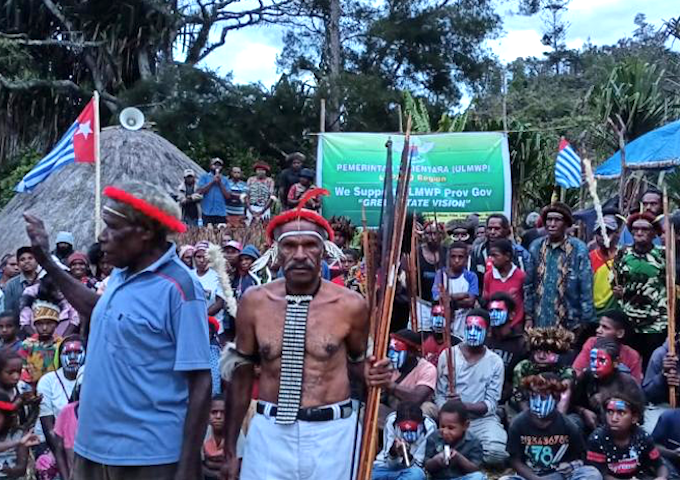
The following article by Edward Curtin on the life of President John F. Kennedy, and his assassination on this date, November 22, 1963, is the lead piece in the eighth issue of Garrison: The Journal of History and Deep Politics that has just been published: “The Political Assassinations of the 1960s.” From JFK, RFK, MLK, and Malcolm X, to Hammarskjold and Lumumba, the 1960s were a tragic period when the CIA took over the United States and profoundly changed the course of history, and Garrison is indispensable for understanding that history and its importance for today.
*****
Despite a treasure trove of new research and information having emerged over the last fifty-eight years, there are many people who still think who killed President John Fitzgerald Kennedy and why are unanswerable questions. They have drunk what Dr. Martin Schotz has called “the waters of uncertainty” that results “in a state of confusion in which anything can be believed but nothing can be known, nothing of significance that is.”
Then there are others who cling to the Lee Harvey Oswald “lone-nut” explanation proffered by the Warren Commission.
Both these groups tend to agree, however, that whatever the truth, unknowable or allegedly known, it has no contemporary relevance but is old-hat, ancient history, stuff for conspiracy-obsessed people with nothing better to do. The general thinking is that the assassination occurred more than a half-century ago, so let’s move on.
Nothing could be further from the truth, for the assassination of JFK is the foundational event of modern American history, the Pandora’s box from which many decades of tragedy have sprung.
Pressured to Wage War
From the day he was sworn in as President on January 20, 1961, John F. Kennedy was relentlessly pressured by the Pentagon, the Central Intelligence Agency, and by many of his own advisers to wage war – clandestine, conventional, and nuclear.
To understand why and by whom he was assassinated on November 22, 1963, one needs to apprehend this pressure and the reasons why President Kennedy consistently resisted it, as well as the consequences of that resistance.
It is a key to understanding the current state of our world today and why the United States has been waging endless foreign wars and creating a national security surveillance state at home since JFK’s death.
A War Hero Who Was Appalled By War
It is very important to remember that Lieutenant John Kennedy was a genuine Naval war hero in WW II, having risked his life and been badly injured while saving his men in the treacherous waters of the South Pacific after their PT boat was sunk by a Japanese destroyer. His older brother Joe and his brother-in-law Billy Hartington had died in the war, as had some of his boat’s crew members.
As a result, Kennedy was extremely sensitive to the horrors of war, and, when he first ran for Congress in Massachusetts in 1946, he made it explicitly clear that avoiding another war was his number one priority. This commitment remained with him and was intensely strengthened throughout his brief presidency until the day he died, fighting for peace.
Despite much rhetoric to the contrary, this anti-war stance was unusual for a politician, especially during the 1950s and 1960s. Kennedy was a remarkable man, for even though he assumed the presidency as somewhat of a cold warrior vis-à-vis the Soviet Union in particular, his experiences in office rapidly chastened that stance. He very quickly came to see that there were many people surrounding him who relished the thought of war, even nuclear war, and he came to consider them as very dangerous.
A Prescient Perspective
Yet even before he became president, in 1957, then Senator Kennedy gave a speech in the U.S. Senate that sent shock waves throughout Washington, D.C. and around the world. He came out in support of Algerian independence from France and African liberation generally and against colonial imperialism. As chair of the Senate’s African Subcommittee in 1959, he urged sympathy for African independence movements as part of American foreign policy. He believed that continued support of colonial policies would only end in more bloodshed because the voices of independence would not be denied, nor should they be.
That speech caused an international uproar, and in the U.S.A. Kennedy was harshly criticized by Eisenhower, Nixon, John Foster Dulles, and even members of the Democratic party, such as Adlai Stevenson and Dean Acheson. But it was applauded in Africa and the Third World.
Yet JFK continued throughout his 1960 presidential campaign raising his voice against colonialism throughout the world and for free and independent African nations. Such views were anathema to the foreign policy establishment, including the CIA and the burgeoning military industrial complex that President Eisenhower belatedly warned against in his Farewell Address, delivered nine months after approving the Bay of Pigs invasion of Cuba in March 1960; this juxtaposition revealed the hold the Pentagon and CIA had, and has, on sitting presidents, as the pressure for war became structurally systemized.
Patrice Lumumba
One of Africa’s anti-colonial and nationalist leaders was the charismatic Congolese Prime Minister Patrice Lumumba. In June, 1960, he had become the first democratically elected leader of the Congo, a country savagely raped and plundered for more than half a century by Belgium’s King Leopold II for himself and multinational mining companies. Kennedy’s support for African independence was well-known and especially feared by the CIA, who, together with Brussels, considered Lumumba, and Kennedy for supporting him, as threats to their interests in the region.
So, three days before JFK’s inauguration, together with the Belgian government, the CIA had Lumumba brutally assassinated after torturing and beating him. According to Robert Johnson, a note taker at a National Security Council meeting in August 1960, Lumumba’s assassination had been approved by President Eisenhower when he gave Allen Dulles, the Director of the CIA, the approval to “eliminate” Lumumba. Johnson disclosed that in a 1975 interview that was discovered in 2000.
On January 26, 1961, when Dulles briefed the new president on the Congo, he did not tell JFK that they already had Lumumba assassinated nine days before. This was meant to keep Kennedy on tenterhooks to teach him a lesson. On February 13, 1961, Kennedy received a phone call from his UN ambassador Adlai Stevenson informing him of Lumumba’s death. There is a photograph by White House photographer Jacques Lowe of the horror-stricken president sitting in the oval office answering that call that is harrowing to view. It was an unmistakable portent of things to come, a warning for the president.
Dag Hammarskjöld, Indonesia, and Sukarno
One of Kennedy’s crucial allies in his efforts to support third-world independence was United Nations’ Secretary-General Dag Hammarskjöld. Hammarskjöld had been deeply involved in peacekeeping in the Congo as well as efforts to resolve disputes in Indonesia, both important countries central to JFK’s concerns. Hammarskjöld was killed on September 18, 1961 while on a peacekeeping mission to the Congo. Substantial evidence exists that he was assassinated and that the CIA and Allen Dulles were involved. Kennedy was devastated to lose such an important ally.
Kennedy’s strategy involved befriending Indonesia as a Cold War ally as a crucial aspect of his Southeast Asian policy of dealing with Laos and Vietnam and finding peaceful resolutions to other smoldering Cold War conflicts. Hammarskjöld was also central to these efforts. The CIA, led by Dulles, strongly opposed Kennedy’s strategy in Indonesia. In fact, Dulles and the CIA had been involved in treacherous maneuverings in resource rich Indonesia for decades. President Kennedy supported the Indonesian President Sukarno, while Dulles opposed him since he stood for Indonesian independence.
Just two days before Kennedy was killed on November 22, 1963, he had accepted an invitation from Indonesian President Sukarno to visit that country the following spring. The aim of the visit was to end the conflict (Konfrontasi) between Indonesia and Malaysia and to continue Kennedy’s efforts to support post-colonial Indonesia with non-military economic and development aid. His goal was to end conflict throughout Southeast Asia and assist the growth of democracy in newly liberated post-colonial countries worldwide.
Of course, JFK never made it to Indonesia in 1964, and his peaceful strategy to bring Indonesia to America’s side and to ease tensions in the Cold War was never realized, thanks to Allen Dulles and the CIA. And, Kennedy’s proposed withdrawal of American military advisers from Vietnam, which, in part, was premised on success in Indonesia, was quickly reversed by Lyndon Johnson after JFK’s murder and within a short time hundreds of thousand American combat troops were sent to Vietnam. In Indonesia, Sukarno would be forced out and replaced by General Suharto, who would rule with an iron fist for the next 30 years. Soon, both countries would experience mass slaughter engineered by Kennedy’s opponents in the CIA and Pentagon.
The Bay of Pigs
In mid-April 1961, less than three months into his presidency, a trap was set for President Kennedy by the CIA and its director, Allen Dulles, who knew of Kennedy’s reluctance to invade Cuba. They assumed the new president would be forced by circumstances at the last minute to send in U.S. Navy and Marine forces to back the invasion that they had planned. The CIA and generals wanted to oust Fidel Castro, and in pursuit of that goal, trained a force of Cuban exiles to invade Cuba. This had started under President Eisenhower and Vice President Nixon. Kennedy refused to go along with sending in American troops and the invasion was roundly defeated. The CIA, military, and Cuban exiles bitterly blamed Kennedy.
But it was all a sham. Classified documents uncovered in 2000 revealed that the CIA had discovered that the Soviets had learned the date of the invasion more than a week in advance and had informed Cuban Prime Minister Fidel Castro, but—and here is a startling fact that should make people’s hair stand on end—the CIA never told the President. The CIA knew the invasion was probably doomed before the fact but went ahead with it anyway.
Why? So, they could blame JFK for the failure afterwards.
Kennedy later said to his friends Dave Powell and Ken O’Donnell, “They were sure I’d give in to them and send the go-ahead order to the [Navy’s aircraft carrier] Essex. They couldn’t believe that a new president like me wouldn’t panic and save his own face. Well, they had me figured all wrong.”
This treachery set the stage for events to come. Sensing but not knowing the full extent of the set-up, Kennedy fired CIA Director Allen Dulles (who, as in a bad joke, was later named to the Warren Commission investigating JFK’s assassination) and his assistant, General Charles Cabell (whose brother, Earle Cabell, to make a bad joke absurd, was the mayor of Dallas on the day Kennedy was killed.) It was later discovered that Earle Cabell was a CIA asset.
JFK said he wanted “to splinter the CIA in a thousand pieces and scatter it to the winds.” Not sentiments to endear him to a secretive government within a government whose power was growing exponentially.
Kennedy Responds After the Bay of Pigs Treachery
The stage was now set for events to follow as JFK, now even more suspicious of the military-intelligence people around him, and in opposition to nearly all his advisers, consistently opposed the use of force in U.S. foreign policy.
In 1961, despite the Joint Chiefs’ demand to put combat troops into Laos – advising 140,000 by the end of April – Kennedy bluntly insisted otherwise as he ordered Averell Harriman, his representative at the Geneva Conference, “Did you understand? I want a negotiated settlement in Laos. I don’t want to put troops in.” The president knew that Laos and Vietnam were linked issues, and since Laos came first on his agenda, he was determined to push for a neutral Laos.
Also in 1961, he refused to accede to the insistence of his top generals to give them permission to use nuclear weapons in a dispute with the Soviet Union over Berlin and Southeast Asia. Walking out of a meeting with his top military advisors, Kennedy threw his hands in the air and said, “These people are crazy.”
In March 1962, the CIA, in the person of legendary operative, Edward Lansdale, and with the approval of every member of the Joint Chiefs of Staff, presented the president with a pretext for a U.S. invasion of Cuba. Code-named Operation Northwoods, the false-flag plan called for innocent people to be shot in the U.S., boats carrying Cuban refugees to be sunk and a terrorism campaign to be launched in Miami, Washington D.C., and other places, all to be blamed on the Castro government so that the public would be outraged and call for an invasion of Cuba.
Kennedy was appalled and rejected this pressure to manipulate him into agreeing to terrorist attacks on Americans that could later be used against him. He already knew that his life was in danger and that the CIA and military were tightening a noose around his neck. But he refused to yield.
As early as June 26, 1961, in a White House meeting with Soviet Premier Nikita Khrushchev’s spokesperson, Mikhail Kharlamov, and Khrushchev’s son-in-law, Alexei Adzhubei, when asked by Kharlamov why he wasn’t moving faster to advance relations between the two countries, JFK said “You don’t understand this country. If I move too fast on U.S.-Soviet relations, I’ll either be thrown into an insane asylum, or be killed.”
JFK refused to bomb and invade Cuba as the military wished during the Cuban missile crisis in October 1962. The Soviets had placed offensive nuclear missiles and more than 30,000 support troops in Cuba to prevent another U.S.-led invasion. American aerial photography had detected the missiles. This was understandably unacceptable to the U.S. government. While being urged by the Joint Chiefs and his trusted advisors to order a preemptive nuclear strike on Cuba, JFK knew that a diplomatic solution was the only way out as he wouldn’t accept the death of hundreds of millions of people that would likely follow a series of nuclear exchanges with the Soviet Union. Only his brother, Robert, and Secretary of Defense Robert McNamara stood with him in opposing the use of nuclear weapons. Daniel Ellsberg, a former Pentagon and Rand Corporation analyst, reported a coup atmosphere in the Pentagon as Kennedy chose to settle rather than attack. In the end, after thirteen incredibly tense days of brinksmanship, Kennedy and Soviet Premier Nikita Khrushchev miraculously found a way to resolve the crisis and prevent the use of those weapons.
Afterwards, JFK told his friend John Kenneth Galbraith that “I never had the slightest intention of doing so.”
The Fateful Year 1963
In June, 1963, JFK gave a historic speech at American University in which he called for the total abolishment of nuclear weapons, the end of the Cold War and the “Pax Americana enforced on the world by American weapons of war,” and movement toward “general and complete disarmament.”
A few months later he signed a Limited Test Ban Treaty with Nikita Khrushchev.
In October 1963 he signed National Security Action Memorandum 263 calling for the withdrawal of 1,000 U. S. military troops from Vietnam by the end of the year and complete withdrawal by the end of 1965.
All this he did while secretly engaging in negotiations with Soviet Premier Nikita Khrushchev via Saturday Evening Post editor and anti-nuclear weapon advocate, Norman Cousins, Soviet agent Georgi Bolshakov, and Pope John XXIII, as well as with Cuba’s Prime Minister Fidel Castro through various intermediaries, one of whom was French Journalist Jean Daniel. Of course, secret was not secret when the CIA was involved.
Kennedy, deeply disturbed by the near nuclear catastrophe of the Cuban missile crisis, was determined to open back channel communications to make sure such a near miss never happened again. He knew fault lay on both sides, and that one slip-up or miscommunication could initiate a nuclear holocaust. He was determined, therefore, to try to open lines of communications with his enemies.
Jean Daniel was going to Cuba to interview Fidel Castro, but before he did he interviewed Kennedy on October 24, 1963. Kennedy, knowing Daniel would tell Castro what he said, asked Daniel if Castro realizes that “through his fault the world was on the verge of nuclear war in October 1962… .or even if he cares about it.” But he also added, to soften the message:
I approved the proclamation Fidel Castro made in the Sierra Maestra, when he justifiably called for justice and especially yearned to rid Cuba of corruption. I will go even further: to some extent it is as though Batista was the incarnation of a number of sins on the part of the United States. Now we will have to pay for those sins. In the matter of the Batista regime, I am in agreement with the first Cuban revolutionaries. That is perfectly clear.
Such sentiments were anathema, shall we say treasonous, to the CIA and top Pentagon generals. These clear refusals to go to war with Cuba, to emphasize peace and negotiated solutions to conflicts rather than war, to order the withdrawal of all military personnel from Vietnam, to call for an end to the Cold War, and his willingness to engage in private, back-channel communications with Cold War enemies marked Kennedy as an enemy of the national security state. They were on a collision course.
The Assassination on November 22, 1963
After going through the Bay of Pigs, Cuban Missile Crisis and many other military cliffhangers, Kennedy underwent a deep metanoia, a spiritual transformation, from Cold Warrior to peacemaker. He came to regard the generals who advised him as devaluing human life and hell-bent on launching nuclear wars. And he was well aware that his growing resistance to war had put him on a dangerous collision course with those generals and the CIA. On numerous occasions, he spoke of the possibility of a military coup d’état against him.
The night before his trip to Dallas, he told his wife, “But, Jackie, if somebody wants to shoot me from a window with a rifle, nobody can stop it, so why worry about it.”
And we know that nobody did try to stop it because they had planned his execution from multiple locations to assure its success.
Who Killed Him?
If the only things you read, watched, or listened to since 1963 were the mainstream corporate media (MSM), you would be convinced that the official explanation for JFK’s assassination, the Warren Commission, was correct in essentials. You would be wrong, because those corporate media have for all these years served as mouthpieces for the government, most notably the CIA that infiltrated and controlled them long ago under a secret program called Operation Mockingbird. In 1977, celebrated Watergate journalist, Carl Bernstein, published a 25,000-word cover story for Rolling Stone, “The CIA and the Media,” in which he published the names of many journalists and media, such as The New York Times, CBS, Time, Newsweek, etc., who worked hand in glove with the CIA for decades. Ironically, or as part of “a limited hangout” (spy talk for admitting some truths while concealing deeper ones), this article can be found at the CIA’s own website.
Total control of information requires media complicity, and with the JFK assassination, and in all matters they consider important, the CIA and the MSM are unified. Such control extends to literature, arts, and popular culture as well as news. Frances Stonor Saunders comprehensively documents this in her 1999 book, The Cultural Cold War: The CIA And The World Of Arts And Letters, and Joel Whitney followed this up in 2016 with Finks: How the CIA Tricked the World’s Best Writers, with particular emphasis on the complicity of the CIA and the famous literary journal The Paris Review. Such revelations are retrospective, of course, but only the most naïve would conclude such operations are a thing of the past.
The Warren Commission claimed that the president was shot by an ex-Marine named Lee Harvey Oswald, firing three bullets from the 6th floor of the Texas School Book Depository as Kennedy’s car was already two hundred and fifty feet past and driving away from him. But this is patently false for many reasons, including the bizarre claim that one of these bullets, later termed “the magic bullet,” passed through Kennedy’s body and zigzagged up and down, left and right, striking Texas Governor John Connolly who was sitting in the front seat and causing seven wounds in all, only to be found later in pristine condition on a stretcher in Parkland Hospital. And, any lone assassin looking out the 6th floor window would have taken the perfect shot as the limousine approached within forty feet of the TSBD on Houston St.
The absurdity of the government’s claim, a ballistic fairy tale, was the key to its assertion that Oswald killed Kennedy. It was visually shattered and rendered ridiculous by the famous Zapruder film that clearly shows the president being shot from the front right, and, as the right front of his head explodes, he is violently thrown back and to his left as Jacqueline Kennedy climbs on to the car’s trunk to retrieve a piece of her husband’s skull and brain.
This video evidence is clear and simple proof of a conspiracy.
Who Was Lee Harvey Oswald?
But there is another way to examine it.
If Lee Harvey Oswald, the man The Warren Commission said killed JFK, was connected to the intelligence community, the FBI and the CIA, then we can logically conclude that he was not “a lone-nut” assassin or not an assassin at all. There is a wealth of evidence to show how, from the very start, Oswald was moved around the globe by the CIA like a pawn in a game, and when the game was done, the pawn was eliminated in the Dallas police headquarters by Jack Ruby two days later.
James W. Douglass, in JFK and the Unspeakable: Why He Died and Why It Matters, the most important book on the matter, asks this question:
Why was Lee Harvey Oswald so tolerated and supported by the government he betrayed?
This is a key question.
After serving as a U.S. Marine at the CIA’s U-2 spy plane Atsugi Air Force Base in Japan with a Crypto clearance (higher than top secret, a fact suppressed by the Warren Commission) and being trained in the Russian language, Oswald left the Marines and defected to the Soviet Union. After denouncing the U.S., rejecting his American citizenship, working at a Soviet factory in Minsk, and taking a Russian wife—during which time Gary Powers’ U-2 spy plane was shot down over the Soviet Union—he returned to the U.S. with a loan from the American Embassy in Moscow, only to be met at the dock in Hoboken, New Jersey, by Spas T. Raikin, a prominent anti-Communist with extensive intelligence connections recommended by the State Department.
Oswald passed through immigration with no trouble, was not prosecuted, moved to Fort Worth, Texas where, at the suggestion of the Dallas CIA Domestic Contacts Service chief, he was met and befriended by George de Mohrenschildt, an anti-communist Russian, who was a CIA asset. De Mohrenschildt got him a job four days later at a photography and graphic arts company that worked on top secret maps for the U.S. Army Map Service related to U-2 spy missions over Cuba.
Oswald was then shepherded around the Dallas area by de Mohrenschildt. In 1977, on the day he revealed he had contacted Oswald for the CIA and was to meet with the House Select Committee on Assassinations’ investigator, Gaeton Fonzi, de Mohrenschildt allegedly committed suicide.
Oswald then moved to New Orleans in April, 1963 where he got a job at the Reily Coffee Company owned by CIA-affiliated William Reily. The Reily Coffee Company was located in close vicinity to the FBI, CIA, Secret Service, and Naval Intelligence offices and a stone’s throw from the office of Guy Banister, a former Special Agent in Charge of the FBI’s Chicago Bureau, who worked as a covert action coordinator for the intelligence services, supplying weapons, money, and training to anti-Castro paramilitaries. Oswald then went to work with Banister and the CIA paramilitaries.
From this time up until the assassination, Oswald engaged in all sorts of contradictory activities, one day portraying himself as pro-Castro, the next day as anti-Castro, many of these theatrical performances being directed from Banister’s office. It was as though Oswald, on the orders of his puppet masters, was enacting multiple and antithetical roles in order to confound anyone intent on deciphering the purposes behind his actions and to set him up as a future “assassin” or “patsy.”
James Douglass persuasively argues that Oswald “seems to have been working with both the CIA and FBI,” as a provocateur for the former and an informant for the latter. Jim and Elsie Wilcott, who worked at the CIA Tokyo Station from 1960-64, in a 1978 interview with the San Francisco Chronicle, said, “It was common knowledge in the Tokyo CIA station that Oswald worked for the agency.”
When Oswald moved to New Orleans in April, 1963, de Mohrenschildt exited the picture, having asked the CIA for and been indirectly given a $285,000 contract to do a geological survey for Haitian dictator “Papa Doc” Duvalier, which he never did, but for which he was paid.
Ruth and Michael Paine then entered the scene on cue. Ruth had been introduced to Oswald by de Mohrenschildt. In September, 1963, Ruth Paine drove from her sister’s house in Virginia to New Orleans to pick up Marina Oswald and bring her to Dallas to live with her, where Lee also stayed on weekends. Back in Dallas, Ruth Paine conveniently arranged a job for Lee Harvey Oswald in the Texas Book Depository, where he began work on October 16, 1963.
Ruth, along with Marina Oswald, was the Warren Commission’s critically important witness against Oswald. Allen Dulles, despite his earlier firing by JFK, got appointed to a key position on the Warren Commission. He questioned the Paines in front of it, studiously avoiding any revealing questions, especially ones that could disclose his personal connections to the Paines. For Michel Paine’s mother, therefore Ruth’s mother-in-law, Ruth Paine Forbes Young, was a close friend of his old mistress, Mary Bancroft, who worked as a spy with Dulles during WW II. Bancroft and he had been invited guests at Ruth Paine Forbes Young’s private island off Cape Cod.
Ruth and Michael Paine had extensive intelligence connections. Thirty years after the assassination, a document was declassified showing Ruth Paine’s sister Sylvia worked for the CIA. Her father traveled throughout Latin America on an Agency for International Development (notorious for CIA front activities) contract and filed reports that went to the CIA. Her husband Michael’s step-father, Arthur Young, was the inventor of the Bell Helicopter, a major military supplier for the Vietnam War, and Michael’s job there gave him a security clearance.
From late September through November 22nd, various “Oswalds” were later reported to have simultaneously been seen from Mexico City to Dallas. Two Oswalds were arrested in the Texas Theater, the real one taken out the front door and an impostor out the back.
As Douglass says:
There were more Oswalds providing evidence against Lee Harvey Oswald than the Warren Report could use or even explain.
Even J. Edgar Hoover knew that Oswald impostors were used, as he told LBJ concerning Oswald’s alleged visit to the Soviet Embassy in Mexico City. He later called this CIA ploy, “the false story re Oswald’s trip to Mexico . . . their (CIA’s) double-dealing,” something that he couldn’t forget.
It was apparent to anyone paying close attention that a very intricate and deadly game was being played at high levels in the shadows.
We know Oswald was blamed for the President’s murder. But if one fairly follows the trail of the crime, it becomes blatantly obvious that government forces were at work. Douglass and others have amassed layer upon layer of evidence to show how this had to be so.
Who Had the Power to Withdraw the President’s Security?
To answer this essential question is to finger the conspirators and to expose, in Vincent Salandria’s words, “the false mystery concealing state crimes.”
Neither Oswald, the mafia nor anti-Castro Cubans could have withdrawn most of the security that day. Sheriff Bill Decker ordered all his deputies “to take no part whatsoever in the security of that [presidential] motorcade.” Police Chief Jesse Curry did the same for Dallas police protection for the president in Dealey Plaza. Both “Chief Curry and Sheriff Decker gave their orders withdrawing security from the president in obedience to orders they had themselves received from the Secret Service.” The Secret Service withdrew the police motorcycle escorts from beside the president’s car where they had been on previous presidential motorcades as well as the day before in Houston and removed agents from the back of the car where they were normally stationed to obstruct gunfire.
The Secret Service admitted there were no Secret Service agents on the ground in Dealey Plaza to protect Kennedy. But we know from extensive witness testimony that, during and after the assassination, there were people in Dealey Plaza impersonating Secret Service agents who stopped policeman and the public from moving through the area on the Grassy Knoll where some of the shots appeared to come from. The Secret Service approved the fateful, dogleg turn (on a dry run on November 18) where the car, driven by Secret Service agent William Greer, moved at a snail’s pace and came almost to a halt before the final head shot, clear and blatant security violations. The House Select Committee on Assassinations concluded this, not some conspiracy theorist.
Who could have squelched the testimony of the many doctors and medical personnel who claimed the president had been shot from the front in his neck and head, testimony contradicting the official story?
Who could have prosecuted and imprisoned Abraham Bolden, the first African-American Secret Service agent personally brought on to the White House detail by JFK, who warned that he feared the president was going to be assassinated? (Douglass interviewed Bolden seven times and his evidence on the aborted plot to kill JFK in Chicago on November 2 is a story little known but extraordinary in its implications.)
The list of all the people who turned up dead, the evidence and events manipulated, the inquiry squelched, distorted, and twisted in an ex post facto cover-up clearly point to forces within the government, not rogue actors without institutional support.
The evidence for a conspiracy organized at the deepest levels of the intelligence apparatus is overwhelming. James Douglass presents it in such depth and so logically that only one hardened to the truth would not be deeply moved and affected by his book, JFK and the Unspeakable.
But there is more from him and other researchers who have cut the Gordian knot of this false mystery with a few brief strokes.
Oswald, The Preordained Patsy
Three examples will suffice to show that Lee Harvey Oswald, working as part of a U.S. Intelligence operation, was set up to take the blame for the assassination of President Kennedy, and that when he said in police custody that he was “a patsy,” he was speaking truthfully. These examples make it clear that Oswald was deceived by his intelligence handlers and had been chosen without his knowledge, long before the murder, to take the blame as a lone, crazed killer.
First, Kennedy was shot at 12:30 P.M. CT. According to the Warren Report, at 12:45 P.M. a police report was issued for a suspect that perfectly fit Oswald’s description. This was based on the testimony of Howard Brennan, who said he was standing across from the Book Depository and saw a standing white man, about 5’10” and slender, fire a rifle at the president’s car from the sixth-floor window. This was blatantly false because photographs taken moments after the shooting show the window open only partially at the bottom about fourteen inches, and it would have been impossible for a standing assassin to be seen “resting against the left windowsill,” (the window sill was a foot from the floor), as Brennan is alleged to have said. He would have therefore had to have been shooting through the glass. The description of the suspect was clearly fabricated in advance to match Oswald’s.
Then between 1:06 and 1:15 P.M. in the quiet residential Oak Cliff neighborhood of Dallas, Police Officer J.D. Tippit was shot and killed. Supposedly based on Brennan’s description broadcast over police radio, Tippit had stopped a man fitting the description and this man pulled a gun and shot the officer. Meanwhile, Oswald had returned to his rooming house where his landlady said he left at 1:03 P.M., went outside, and was standing at a northbound bus stop. The Tippet murder took place nine-tenths of a mile away to the south where a witness, Mrs. Higgins, said she heard a gunshot at 1:06 P.M., ran outside, saw Tippit lying in the street and a man running away with a handgun whom she said was not Oswald.
Oswald is reported to have entered the Texas Theater minutes before the Tippit murder. The concession stand operator, Warren Burroughs, has said he sold him popcorn at 1:15 P.M., which is the time the Warren Report claims Tippit was killed. At 1:50 P.M., Lee Harvey Oswald was arrested in the Texas Theater and taken out the front door where a crowd and many police cars awaited him, while a few minutes later a second Oswald is secretly taken out the back door of the movie theater. (To read this story of the second Oswald and his movement by the CIA out of Dallas on a military aircraft on the afternoon of November 22, 1963, documented in great detail by James W. Douglass, is an eye-opener.)
The official narrative of Oswald and the Tippit murder begs credulity, but it serves to “show” that Oswald was a killer.
Despite his denials, Oswald, set up for Kennedy’s murder based on a prepackaged description, is arraigned for Tippit’s murder at 7:10 PM. It was not until the next day that he was charged for Kennedy’s.
The Message to Air Force One
Secondly, while Oswald is being questioned about Tippit’s murder in the afternoon hours after his arrest, Air Force One has left Dallas for Washington with the newly sworn-in president Lyndon Johnson and the presidential party. Back in D.C., the White House Situation Room is under the personal and direct control of Kennedy’s National Security Advisor, McGeorge Bundy, a man with close CIA ties who had opposed JFK on many matters, including the Bay of Pigs and Kennedy’s order to withdraw from Vietnam.
As reported by Theodore White, in The Making of the President 1964, Johnson and the others were informed by the Bundy controlled Situation Room that “there was no conspiracy, learned of the identity of Oswald and his arrest …”
Vincent Salandria, one of the earliest and most astute critics of the Warren Commission, put it this way in his book, False Mystery:
This [announcement from the Situation Room to Air Force One in flight back to Washington, D.C] was the very first announcement of Oswald as the lone assassin. In Dallas, Oswald was not even charged with assassinating the President until 1:30 A.M. the next morning. The plane landed at 5:59 P.M. on the 22nd. At that time the District Attorney of Dallas, Henry Wade, was stating that “preliminary reports indicated more than one person was involved in the shooting … the electric chair is too good for the killers.” Can there be any doubt that for any government taken by surprise by the assassination — and legitimately seeking the truth concerning it — less than six hours after the time of the assassination was too soon to know there was no conspiracy? This announcement was the first which designated Oswald as the lone assassin….
I propose the thesis that McGeorge Bundy, when that announcement was issued from his Situation Room, had reason to know that the true meaning of such a message when conveyed to the Presidential party on Air Force One [and to a separate plane with the entire cabinet that had turned around and was headed back over the Pacific Ocean] was not the ostensible message which was being communicated. Rather, I submit that Bundy … was really conveying to the Presidential party the thought that Oswald was being designated the lone assassin before any evidence against him was ascertainable. As a central coordinator of intelligence services, Bundy in transmitting such a message through the Situation Room was really telling the Presidential party that an unholy marriage had taken place between the U.S. Governmental intelligence services and the lone-assassin doctrine. Was he not telling the Presidential party peremptorily, ‘Now, hear this! Oswald is the assassin, the sole assassin. Evidence is not available yet. Evidence will be obtained, or in lieu thereof evidence will be created. This is a crucial matter of state that cannot await evidence. The new rulers have spoken. You, there, Mr. New President, and therefore dispatchable stuff, and you the underlings of a deposed President, heed the message well.’ Was not Bundy’s Situation Room serving an Orwellian double-think function?
Oswald’s Prepackaged Life Story
Finally, Air Force Colonel Fletcher Prouty adds a third example of the CIA conspiracy for those who need more evidence that the government has lied from the start about the assassination.
Prouty was Chief of Special Operations in the Pentagon before and during the Kennedy years. He was the liaison between the Joint Chiefs and the CIA, working closely with Director Allen Dulles and others in supporting the clandestine operations of the CIA under military cover. He had been sent out of the country to the South Pole by the aforementioned CIA operative Edward Lansdale (Operation Northwoods) before the Kennedy assassination and was returning on November 22, 1963. On a stopover in Christchurch, New Zealand, he heard a radio report that the president had been killed but knew no details. He was having breakfast with a U.S Congressman at 7:30 AM on November 23, New Zealand time. A short time later, at approximately 4:30 PM Dallas time, November 22, he bought the Christchurch Star 23 November 1963 newspaper and read it together with the Congressman.
The newspaper reports from the scene said that Kennedy had been killed by bursts of automatic weapons fire, not a single shot rifle, firing three separate shots in 6.8 seconds, as was later claimed for Oswald. But the thing that really startled him was that at a time when Oswald had just been arrested and had not even been charged for the murder of Officer Tippit, there was elaborate background information on Oswald, his time in Russia, his association with Fair Play for Cuba Committee in New Orleans, etc. “It’s almost like a book written five years later,” said Prouty. “Furthermore, there’s a picture of Oswald, well-dressed in a business suit, whereas, when he was picked up on the streets of Dallas after the President’s death, he had on some t-shirt or something…
Who had written that scenario? Who wrote that script…So much news was already written ahead of time of the murder to say that Oswald killed the President and that he did it with three shots…Somebody had decided Oswald was going to be the patsy…Where did they get it, before the police had charged him with the crime? Not so much ‘where,’ as ‘why’ Oswald?
Prouty, an experienced military man working for the CIA in the Pentagon, accused the military-intelligence “High Cabal” of killing President Kennedy in an elaborate and sophisticated plot and blaming it on Oswald, whom they had begun setting up years in advance.
The evidence for a government plot to plan, assassinate, cover-up, and choose a patsy in the murder of President John Kennedy is overwhelming.
Five years after JFK’s assassination, we would learn, to our chagrin and his glory, that the president’s younger brother, Senator Robert F. Kennedy, equally brave and unintimidated, would take a bullet to the back of his head in 1968 as he was on his way to the presidency and the pursuit of his brother’s killers. The same cowards struck again.
Their successors still run the country and must be stopped.
Epilogue by James W. Douglass
John F. Kennedy was raised from the death of wealth, power, and privilege. The son of a millionaire ambassador, he was born, raised, and educated to rule the system. When he was elected President, Kennedy’s heritage of power corresponded to his position as head of the greatest national security state in history. But Kennedy, like Lazarus, was raised from the death of that system. In spite of all odds, he became a peacemaker and, thus, a traitor to the system….
Why? What raised Kennedy from the dead? Why did John Kennedy choose life in the midst of death and by continuing to choose life thus condemn himself to death? I have puzzled over that question while studying the various biographies of Kennedy. May I suggest one source of grace for his resurrection as a peacemaker? In reading his story, one is struck by his devotion to his children. There is no mistaking the depth of love he had for Caroline and John, and the overwhelming pain he and Jacqueline experienced at the death of their son Patrick. Robert Kennedy in his book Thirteen Days has described how his brother saw the Cuban Missile Crisis in terms of the future of his children and all children. I believe John Kennedy was at least partially raised from the dead of the national security state by the life of his children. The heroic peacemaking of his final months, with his acceptance of its likely cost in his own death, was, I suspect, partly a result of the universal life he saw in and through them. I think he believed profoundly the words that he gave in his American University address as his foundation for rejecting the Cold War: ‘Our most basic common link is that we all inhabit this small planet. We all breathe the same air. We all cherish our children’s future. And we are all mortal.

The post
President John F. Kennedy: His Life and Public Assassination first appeared on
Dissident Voice.
This content originally appeared on Dissident Voice and was authored by Edward Curtin.
This post was originally published on Radio Free.
